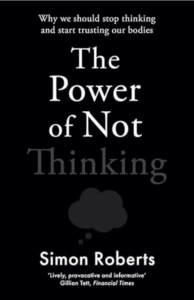Millinery

One takes one’s hat off to them. Unfortunately, I was wearing only my Wikipedia baseball cap, so I couldn’t.
Quote of the Day
“In order to discover new lands, one must be willing to lose sight of the shore”
- Andre Gide
Musical alternative to the morning’s radio news
Ry Cooder & David Lindley | ‘Jesus on the Mainline’ and ‘Crazy ‘bout a Mercury’ | New Orleans Jazz & Heritage Festival ’90s.
Two for the price of one. Wish I’d been there.
Long Read of the Day
Not just for geeks – the UK’s tech policy blitz should matter to us all
Nice, grown-up commentary by Martha Lane Fox on the Starmer regime’s flirtation with AI.
Last week, the Prime Minister stood on stage at London Tech Week and declared Britain must be “masters of our fate” in technology. It capped off months of relentless tech related announcements: the £86 billion R&D accelerator programmes in the 2025 Spending Review, the £2 billion AI Opportunities Action Plan with its 50 measures, £1.2 billion for digital transformation across public services, £1 billion to expand Britain’s compute capacity twentyfold by 2030, and a rebranded AI Security Institute. Add in £187 million for workforce training and £25 million to attract elite AI talent, and you have possibly the most comprehensive tech policy blitz in British history.
I was in the audience and couldn’t help smiling as I watched, because the PM’s autocue broke. So while he was doing his best to paint a picture of a country powered by innovation, he had to contend with the most low key tech barrier. He did pretty well and was helped by Jensen Huang, the rockstar founder of Nvidia who joined him on stage. But beneath the razzle-dazzle, a deeper question lingered in my mind: why should any of this matter if you don’t run a startup, work in tech, or dabble in VC deals?
I think there is one simple reason – because tech policy is now national policy. It is shaping how your NHS appointment is booked, how your local authority approves planning permission, how your child’s homework might be marked. It determines how we spend public money, how we compete with global economies, and how safe or exposed we are as a nation. This isn’t just about apps and gadgets, it’s about power, sovereignty, and the future of public life…
Good stuff. Worth a read.
So many books, so little time

Two things infuriate me about the current ‘AI’ feeding frenzy.
-
One is the way we casually accept the proposition that LLMs — which have supposedly ‘read’ everything that’s ever been published — thereby have access to all the knowledge that humans have accumulated over millennia.
-
The other is the chronically-impoverished, unidimensional concept of ‘intelligence’ that’s implicit in “artificial intelligence”.
Both assumptions are ludicrously untenable. The ‘knowledge’ ingested by LLMs is simply the kind that has been written down. But that’s just the tip of a very big iceberg. It ignores all kinds of knowledge that humans have acquired — knowledge that is almost never written down or even expressed explicitly. Tacit knowledge and craft knowledge are just two obvious examples. Knowing how to ride a bike is another.
Secondly, the pathetically narrow concept of ‘intelligence’ implicit in the ‘AI’ frenzy is astonishing in its ignorance. Has nobody in Silicon Valley ever read Howard Gardner? Many years ago he published Frames of Mind in which he argued convincingly that intelligence is not a single ability but a collection of distinct types. He identified eight of these: linguistic, logical-mathematical, spatial, musical, bodily-kinesthetic, interpersonal, intrapersonal, and naturalistic. He suggested that all humans have different strengths and learning styles across these areas. An update on his thinking can be found in a more recent book, Multiple Intelligences.
All of which is a long-winded way of explaining why I’m enjoying Simon Roberts’s book. He’s an anthropologist, and a persuasive explainer of the various ways in which our bodies acquire, retain and deploy information. The implication: we should learn to trust the instincts that inform the most crucial decisions and actions in our lives.
TL;DR version. Nobody ever learned how to ride a bike by reading a manual.
This Blog is also available as an email three days a week. If you think that might suit you better, why not subscribe? One email on Mondays, Wednesdays and Fridays delivered to your inbox at 5am UK time. It’s free, and you can always unsubscribe if you conclude your inbox is full enough already!
